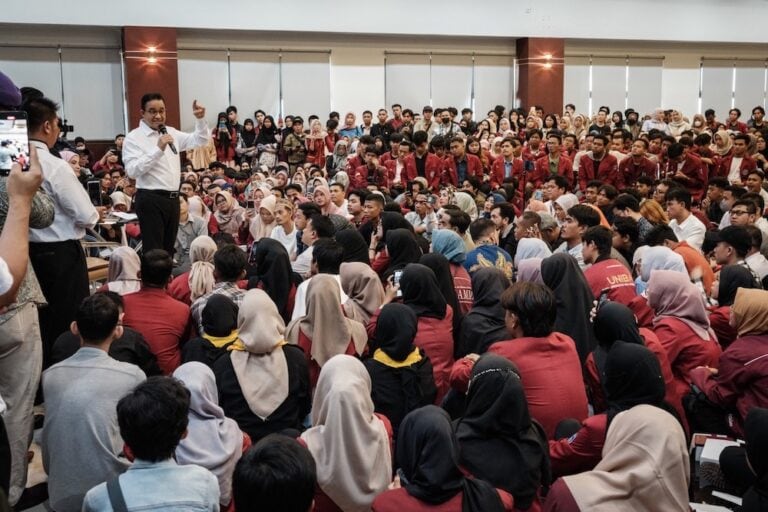The Alliance of Independent Journalists (AJI) has identified 19 articles in the draft criminal code of Indonesia that could criminalize the work of journalists. If passed, these new provisions could stifle press freedom ahead of the 2024 elections.
This statement was originally published on aji.or.id on 30 August 2022.
The latest draft of Indonesia’s controversial Criminal Code (RUU KUHP) has been unveiled to replace the old version, which has been enacted since 1946. If passed, this law would stifle freedom of press and expression ahead of the upcoming 2024 elections following the previous problematic regulations – the Information and Electronic Transaction (IET) Law in 2008 and the content moderation Regulation in 2020.
The Alliance of Independent Journalists (AJI) has identified 19 articles in the draft that could put journalists and citizens in jail, such as a 5-year sentence for insulting the president/vice president, one and a half years in prison for offending the government, other state bodies, and courts, and several years’ imprisonment for defamation.
Besides, journalists can also be imprisoned for 6 months to 4 years under certain articles, regarding incomplete reports and fake news, which lead to riots. Another concerning article regards criminal activity in printing and publishing.
AJI warns that the new Criminal Code would target critical journalists with criminal penalties. The media act as watchdogs usually criticizing government policies or the president/vice president, and uncovering crimes or corruption.
This code violates the principles of human rights law, in particular with regard to the Siracusa Principles regarding legitimate restrictions. It also contradicts the principle of protecting freedom of expression in relation to criticism of public officials.
“The Draft Criminal Code is the most threatening regulation. With these 19 problematic articles, it shows that the government is ignoring the protection of press freedom and freedom of expression,” said AJI Chairman Sasmito.
Even though Indonesia has ratified the 1999 Press Law to protect journalists, the articles of defamation remain a major threat. In the last two years, at least three journalists have been imprisoned and many more caught in legal cases under the Information and Electronic Transactions Law, which was issued in 2008, then revised in 2016.
AJI urges the government and the parliament to decriminalize the works of journalists in serving the public. The government must also respect the Press Law as a special mechanism in solving any news case.



